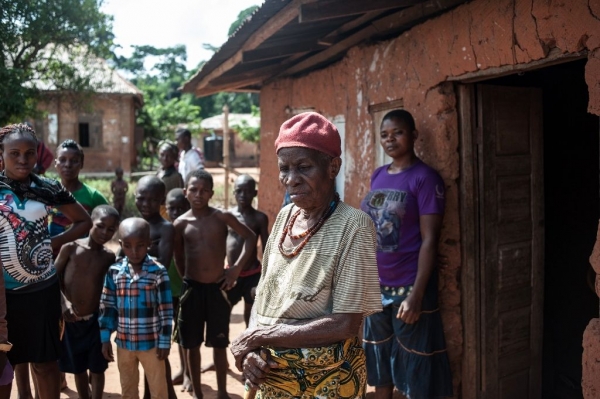The Center for Civilians in Conflict (CIVIC) is an international non-governmental organization which was created in 2003 to promote the protection of civilians in conflicts. CIVIC’s latest report, released in September 2020 and funded by the European Union, focuses on the impact of the Nigerian conflict on two particularly vulnerable categories of civilians: persons with disabilities (PWDs) and the elderly. CIVIC’s research was conducted in two Local Government Areas of Borno state - Baja and Dikwa, at the epicenter of the conflict - underlying the issue of safeguarding these specific categories and providing recommendations to better meet their needs.
In the past 11 years, civilians in northeast Nigeria have born the brunt of a conflict that resulted in more than 39,000 casualties and violent abuses such as arbitrary detention, sexual exploitation, extra-judicial killings, torture and forced displacement. Local violence has a tragic impact on all civilians, but some categories are more vulnerable than others. PWDs and the elderly, as shown by CIVIC’s research, have to face additional risks due to their physical condition. The majority of PWDs and elderly respondents interviewed by CIVIC complained that government security forces should have done more to protect communities from the attacks of armed organized groups (AOG), and underlined the need for tailored protection strategies taking into consideration their specific needs.
In fact, the typical self-protection strategies commonly used by civilians – such as fleeing violence or hiding in homes – are more challenging for PWDs and the elderly and, sometimes, impossible to enact. Since AOGs usually attack communities with little or no warning, it is common for civilians to flee, either temporarily or for an extended period of time, walking for days with no food and shelter. Considering the limited mobility of PWDs and the elderly, sometimes they have no other choice than staying in their village and facing the attack. As reported by some of the interviewees, it sometimes occurs that an AOG shows tolerance towards these specific categories and decides to spare them. However, besides these exceptions, AOG usually hurt civilians indiscriminately. Another concern faced by these vulnerable categories is their dependence on caregivers: respondents reported that no one would help them during an attack because their caregivers would have to protect themselves first. Moreover, PWDs and the elderly might permanently lose their caregivers as a consequence of an armed attack and be left with no help at all.
The report shows the interviewees’ resentment towards State security forces and the Nigerian government, mainly because of their insufficient efforts to protect civilians from AOGs, with some security measures even inhibiting freedom of movement for civilians. For instance, in some cases State security forces built trenches around the town perimeter or internally displaced people’s (IDP) camps to prevent AOGs from entering. While the trenches protected towns and IDP camps from the outside, they also prevented civilians from freely reaching their farms, or even essential services such as healthcare – not always provided in IDP camps. Considering the already limited mobility of PWDs and the elderly, these categories are even more impacted by such measures.
CIVIC’s report aims at addressing recommendations to the stakeholders involved, in order to meet the particular protection needs of these vulnerable categories. Respondents identified a variety of actors they believed should be responsible for their protection, as the military, the police, non-governmental organizations and community-based security forces. As noted by the report, civilian-led initiatives seemed to fill the gaps of the insufficient protection strategies implemented by the government, and CIVIC itself currently supports community protection groups. However, it is clear that a tailored approach that takes into consideration the special needs of PWDs and the elderly is urgently needed, rather than a general approach targeting all civilians in the same way.
To read more, please visit:
https://civiliansinconflict.org/wp-content/uploads/2020/09/Nigeria-PWD.pdf
Author: Margherita Curti; Editor: Matteo Consiglio




